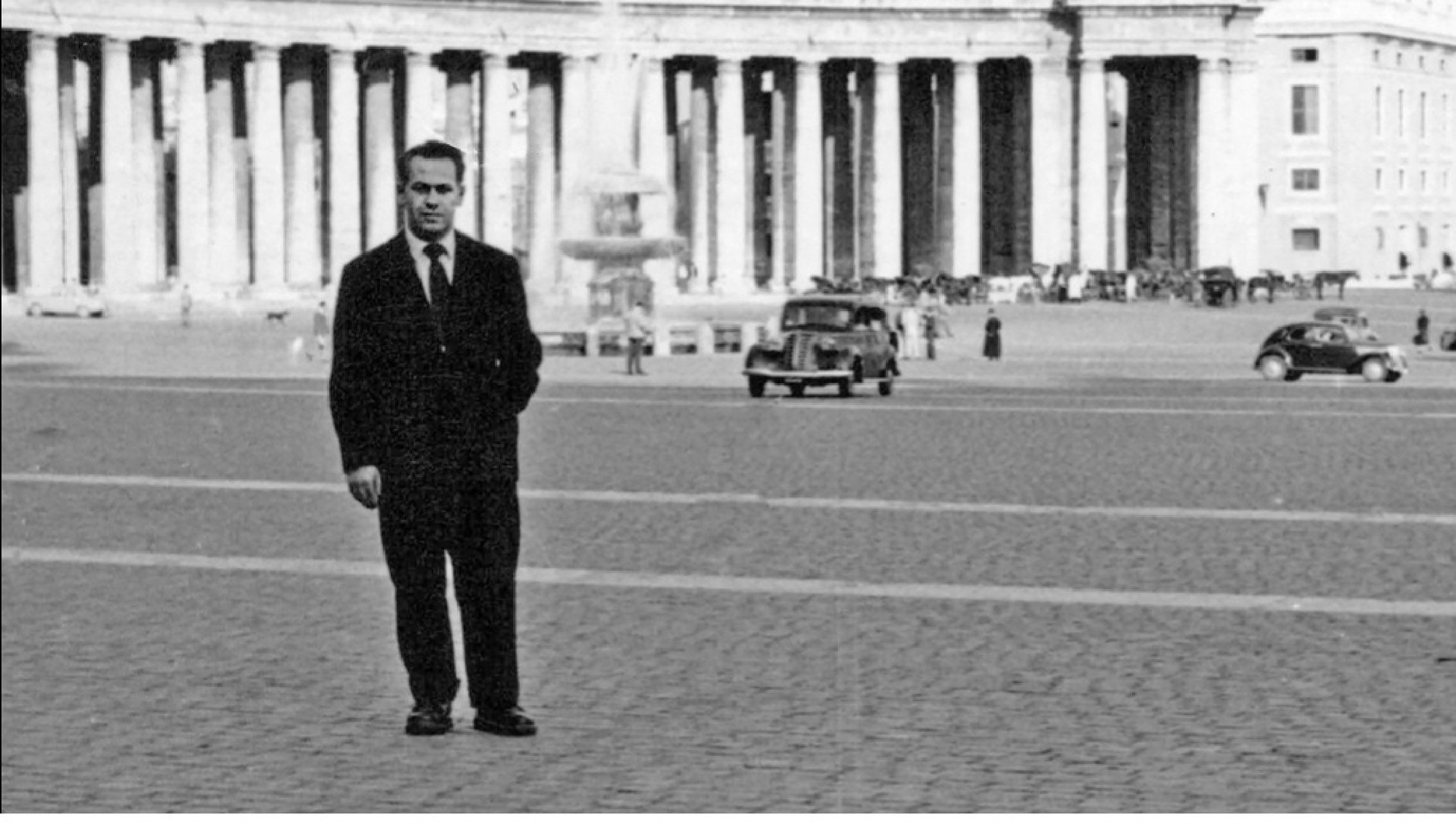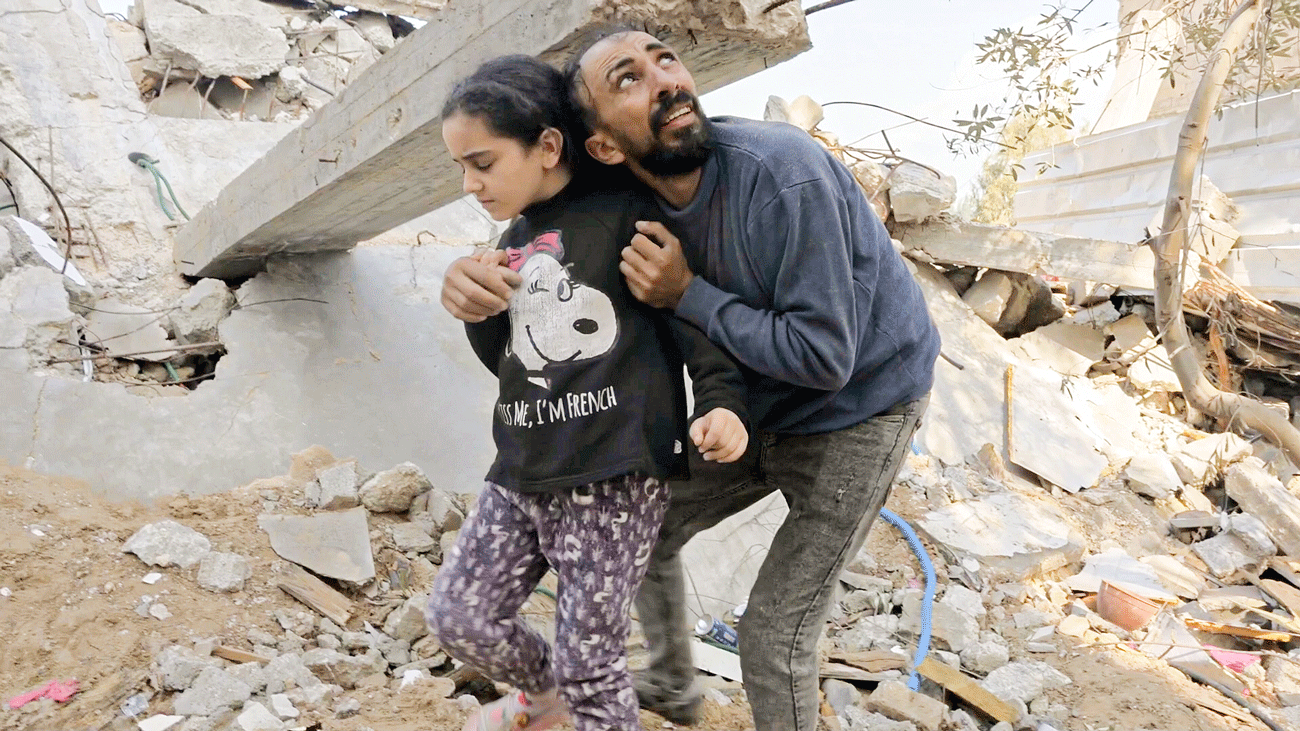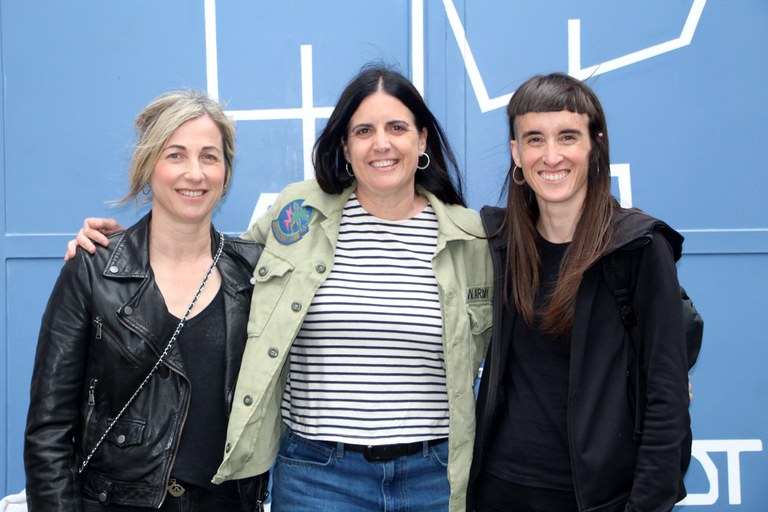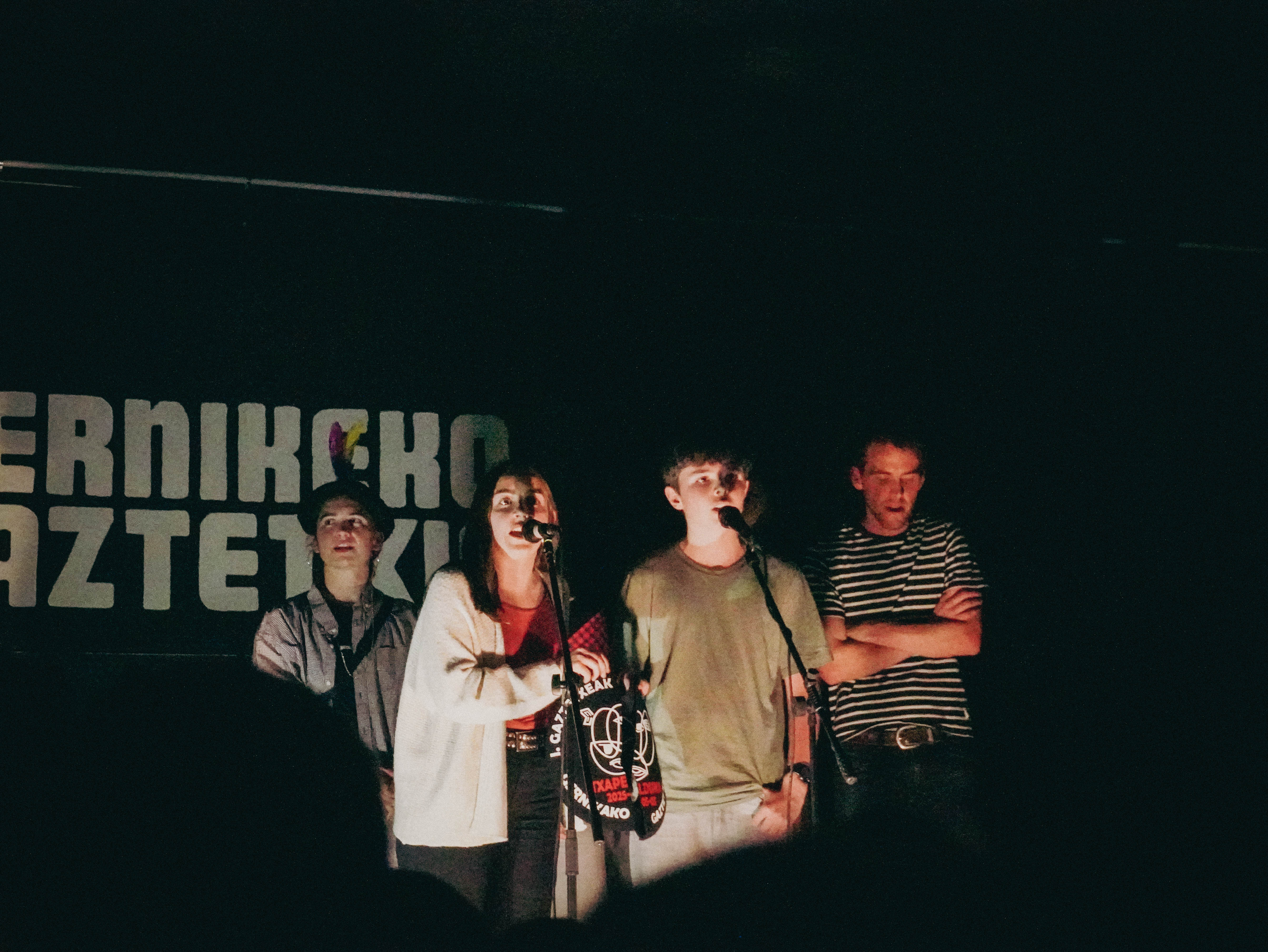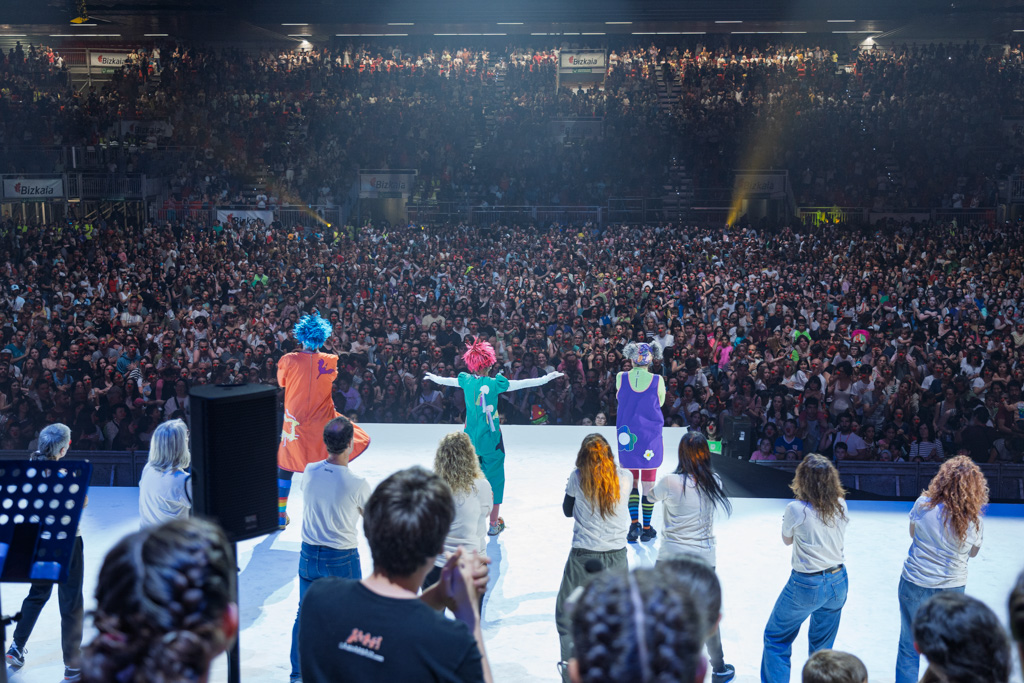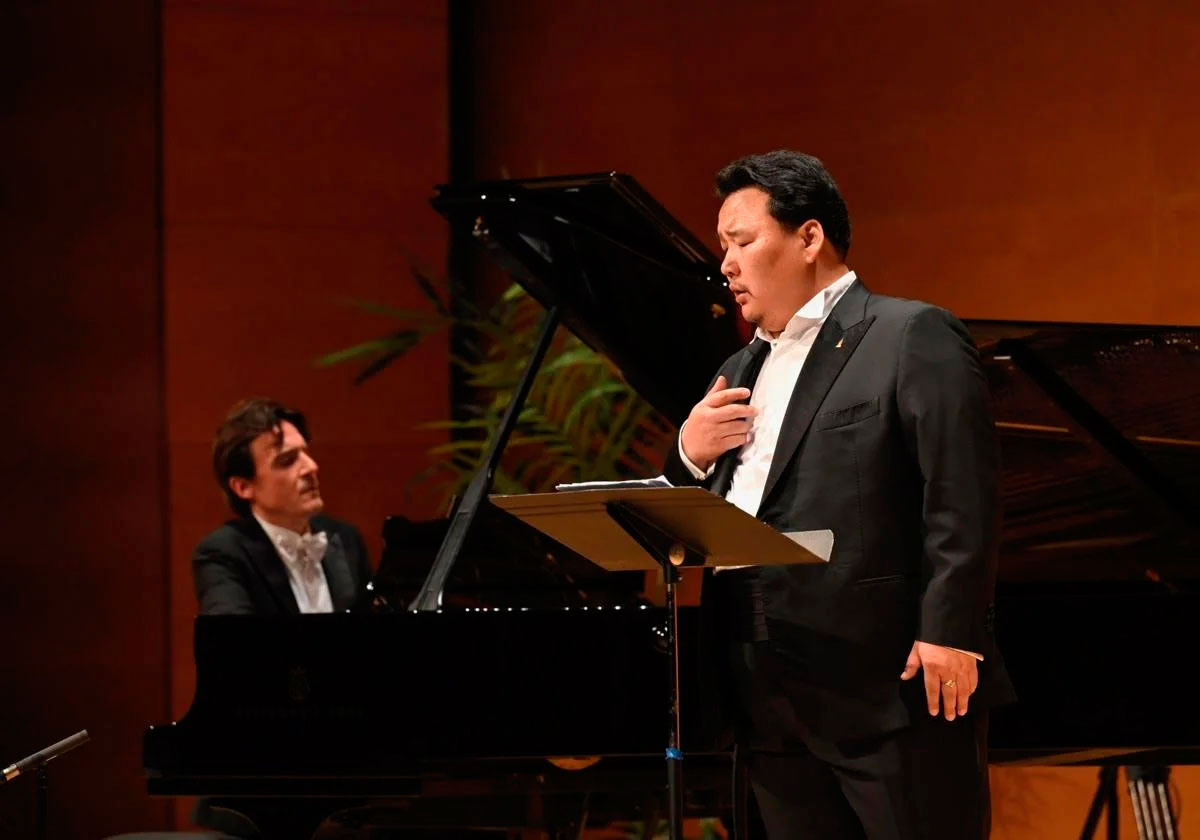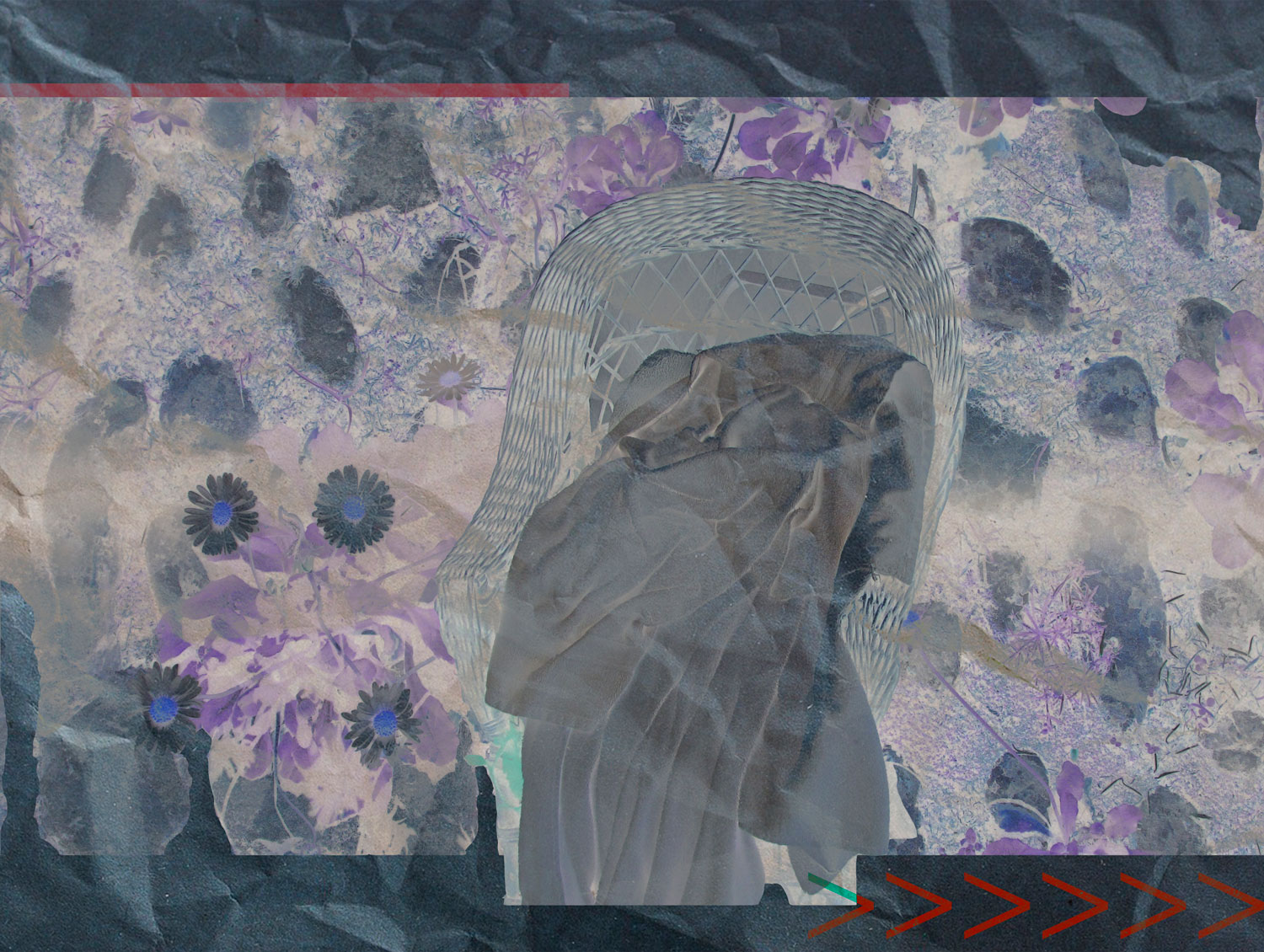"Hip-hop is a road to hope for those of us who have experienced war and harsh misery."
- Rebeca Lane is a Guatemalan poet, anarchist and roar. It is defined as artivista – which unites art and activism – and as Central American. In her writings and songs she denounces the dictatorship and makes her firm on behalf of women. He has come to the Basque Country invited by San Sebastian 2016 and is conducting workshops and concerts both here and there. Although it does hip hop, it moves far away from the pattern of the United States and delves into the Central American afro: reggae, cumbia, Caribbean...
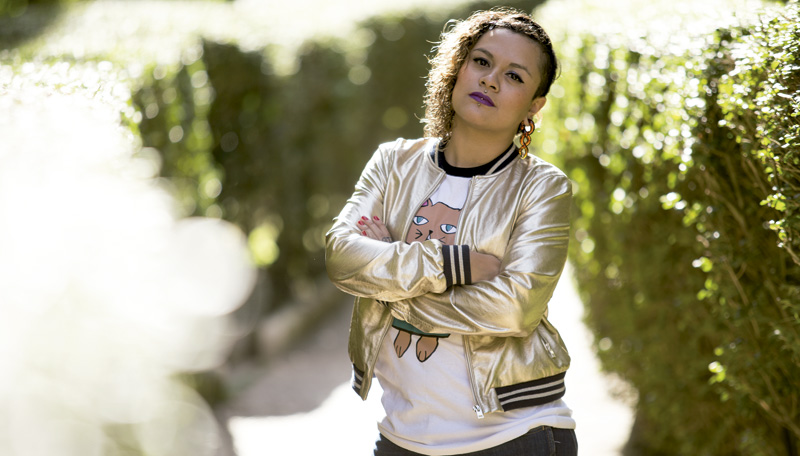
When and how did activism begin?
I was born in the 1980s, in the middle of the Civil War. One of my aunts, who belonged to a leftist political movement, was kidnapped and disappeared in 1981. I grew up in the city, lived far from war in a safe environment, but I suffered the loss of my aunt and that emptiness. So when we were 15 years old, we came together with other people to heal wounds and work through historical memory, and we began to make known what happened during the dictatorship. We walked along the line of anarchism. And as early as 2008, when I was 28, I started singing rap.
Is it difficult – or more difficult – to be a woman in Guatemala?
It's much harder. Since the colony, Guatemala has been engaged in a permanent war. And the ones that have suffered the most from violence are women. In particular, rape has been one of the most common tools used in wars. Guatemala has one of the highest feminization rates in the world. Every year, about 700 women are killed and the number of deaths is increasing. Another serious disease in Guatemala is the spread of teenage pregnancies, which even force children to give birth. Many of them have been raped by men close to the families and others by their relatives. In Guatemala, women are not free to walk alone in certain hours and places. In addition, we cannot dress in any clothing because there are many men on the street who can manipulate us. All this that I'm counting is happening all over Guatemala, it's widespread, also in cities.
And what is your day-to-day life like, being an activist feminist?
I live in a safe environment, and that's why I'm so lucky. In addition, only 2% of the population has had the opportunity to study at a public university with access. I am a privileged person in Guatemala. And of course, in the street and in the rap environment, I approach my peers and friends.
What is tobacco in Guatemalan society today?
It is a religious and conservative society, and the State is closely linked to the Church. Imagine that, although the number of pregnancies among adolescents is enormous, they do not want to allow sexuality education to be provided in schools. And similarly, although there are many violations, no one has the right to abort. She has recently been the first feminist lesbian MP in Congress that has begun to push for actions on behalf of women, but her party members say she does not represent women because she is a lesbian. Another great taboo we live in is the sexual diversity of political office. Men, for example, do not dare to recognize it and represent an aggressive attitude of machismo against it.
Until a few years ago we believed that Europe was the land of rights and achievements, but that is not the case. What can we learn from the Latin American struggles?
In Latin America there has always been a shortage of resources, police repression, corruption, denial of rights... and in Europe there has always been, but above all, migrants and people of color have suffered. Now, on the other hand, it's also come to middle classes, and as they can echo more, it's much more spectacular. For a long time European targets have ignored the struggles of people of color. And now, when they share many of these struggles, it's better to strengthen their solidarity. In Latin America, it is also very difficult to promote relations between rural and other indigenous people. The desire for wealth of neoliberalism is insatiable, so it is better for us to join together as soon as possible.
What is the We Are Warriors initiative like?
Art is a project to understand from the empowerment of women, which I created three years ago. It wants to make it possible for there to be more options for both onstage and day-to-day. The key is to generate alternatives that help us get out of the places that have been imposed on us and to express ourselves as collectives. The initiatives of hip-hop women in Central America and Mexico focus on educational processes, their own spaces for debate, healing and event production. Within hip-hop culture there are huge disadvantages between men and women, also here. That's why we train and organize women's shows. We won't wait for men to call us. This year we have done 4 rapers for 8 cities, from Panama to Ciudad Juárez, on the road we have held workshops, concerts... and we have recorded a documentary that has stopped us from lack of funding.
Why did you choose hip-hop?
It's a culture that has been in line with me for a long time. In Central America it has been very close to the real facts and to the young. For those of us who have experienced such harsh wars, misery and violence, hip-hop is a means of keeping hope. Even though we don't have studies, we can dance, paint, sing -- and when it comes to talking about us, we can make people see what the media is hiding. I got to rap through poetry. Rapa is the poetry of everyday life, of the street, of youth. Publishing a book in Guatemala is elitist, it is not easy and there is also a lot of illiteracy. There's no culture of reading fondness. That's why music allows us to transmit it through oral communication.
What is the main challenge of feminism?
Feminism, recognized and validated in the world, has a Western perspective. And that's a very theoretical approach. Indigenous peoples and Latin America make other contributions to feminism, which includes the worldview of peoples, more collective visions, less individualistic. From the Western point of view it can be said with peace of mind that “I have to be an independent woman, I will go to university”. We, on the contrary, if we look at the collective and some women don't have the right to go to college, we decided to keep fighting. In Germany, for example, I took the surprise that feminism is a matter of law there. There, they do not understand it as we do, as a relationship between women, with nature and spirituality. Feminism has to take it out of books and put it in the body, take it to day by day, into the body, into the soul.
BRN + Auzoko eta Sain mendi + Odei + Monsieur le crepe eta Muxker
Zer: Uzta jaia.
Noiz: maiatzaren 2an.
Non: Bilborock aretoan.
---------------------------------------------------------
Ereindako haziek ura, argia eta denbora behar dute ernaltzeko. Naturak berezko ditu... [+]
Euskadi markak, eraikuntza sektoreko ekonomiaren estrategian, “industrializazioa” mantrarako hitz gisa hartu duela jakinarazi berri du Eusko Jaurlaritzak. Etxebizitza publikoaren eraikuntzan industrializaturiko prozesu eta elementuak lan guztien %65a izatea... [+]
Last week, during the blackout, seeing ourselves vulnerable, we began to investigate many people in order to understand what happened: how does the infrastructure that transports electricity work? Why is it getting old? I am fascinated by the physical phenomenon of electricity... [+]
Aurreko tertuliako galderari erantzuteko beste modu bat izan zitekeen, akaso modu inplizituago batean, bigarren solasaldi honetako izenburua. Figura literarioaz gaindi, pertsonaia zalantzan jartzeko, edo, kontrara, pertsonaiaren testuingurua ulertzeko saiakera bat. Santi... [+]
Now that everyone has become more Franciscan than the Pope, it’s worth remembering our unsurpassed classics. There was one in the 17th century, his grace was Arnaut Oienart. And since we can’t immerse ourselves in all his works, today we will praise O.ten youth in... [+]
“We rehearsed, we showed it to the boys, we were there when they needed help for the grill, but then we never danced in the square or even crossed our mind.” Oihane Auzmendi Iturbe (Legazpiia, 1977) is a dancer of the dance group Roots, but for years he did not have the... [+]
Amartuvshin Enkhbat baritonoa
Pianoan: Stefano Salvatori.
Antolatzailea: OLBE.
Zer: Verdi, Mascagni, Leoncavallo eta Giordanoren operen ariak.
Non: Bilboko Euskalduna Jauregian.
Noiz: martxoaren 29an.
Martin Martina and the Mystery of the Golden Comb
by Amancay
Gaztelañaga Batu, 2024
-----------------------------------------------------
Amancay Castañaga launches the mystery of Martín Martina and the golden comb accompanied by the illustrations of Alain Martínez... [+]
The annoying noise of the works of the neighbors has awakened me even today. I put my head on the pillow, and I tried to sleep for another twenty minutes, but there was no one to shut that drill down. I woke up and looked at the table of duties that I did at the beginning of... [+]









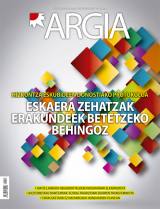


.jpg)
